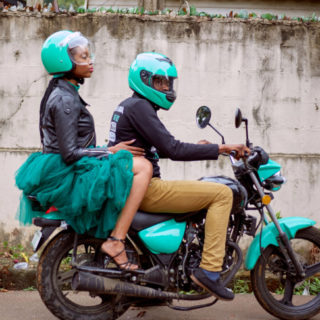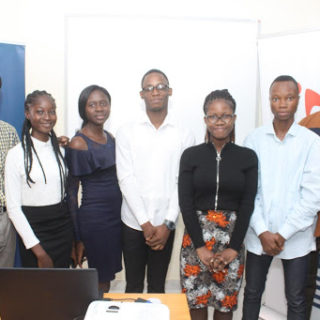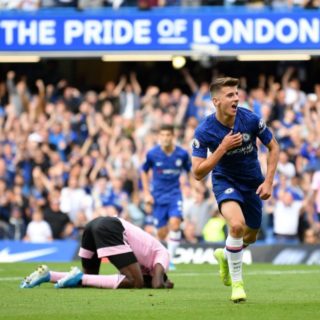The headlines have been short, scary and painfully familiar, spelling out different variations of the same message: “Xenophobic Attacks In South Africa.”
The story: the alleged shooting of a cab driver in Pretoria erupted into a wave of mob violence against African nationals in South Africa this week. Xenophobia is today’s trending topic of discussion, although the unfurling of the now-too-familiar #SayNoToXenophobia hashtag is the only reminder you need that we’re simply rehashing a very old problem.
In 2008, 60 people were killed and over 50,000 forced from their homes in violence against African nationals, according to Human Rights Watch. In 2015, similar attacks forced many foreign governments to repatriate their citizens from South Africa.
The recent violence is motivated by decades-old rhetoric that blames immigrants, particularly those from other African countries, of ‘stealing’ jobs and bringing crime into local communities. The sentiment was echoed by South African truck drivers who, on Monday, embarked on a wildcat strike protesting against their foreign colleagues. In videos circulating on social media, mobs can be seen shouting “Go Home” in the streets.
A closer look, however, suggests a disturbing connection between socio-economic conditions and the outbreak of these xenophobic attacks. The South African economy has been unstable for four years and counting. It shrank badly in the first quarter of 2019, amidst fears of an impending recession. There are other sources of discontent. The South African government still faces crises of representation and legitimacy, months after ex-president Jacob Zuma was ousted. Unemployment is worryingly high; more than 10 million people are unemployed, or 38.5% of people who could be working.
In the last few years, populist regimes and movements have emerged in almost every corner of the world. From Brexit to the Trump White House, it would seem the nationalist bug has now bitten South Africa. If there’s anything we’ve learned from Trump, it is that populism needs enemies. And when things go wrong, it often looks to offer up ‘minorities’ as the problem. It doesn’t help that immigrant population in South Africa has doubled in the last decade.
Add that to years of systemic oppression, apartheid and unfair land ownership laws and you can see how decades of discontent and anger are directed at an easy target – immigrants. Despite subsequent reports that the Pretoria shooter was not Nigerian, many have been killed, beaten, forcefully removed and had their businesses destroyed. It is an easier solution than the years of economic development, institutional restructuring and education that South Africa’s indigenous population, and Africans in general, should be asking for.
While the hashtag #WeHaveNoPresident silently indicts Nigeria’s notoriously lethargic President Buhari, Nigerians are outspoken about the attacks. Nigeria’s Foreign Affairs minister, Geoffrey Onyeama condemned the attack in strong language – so did the former minister, Oby Ezekwesili among other commentators and public personalities.
Social media has become the second battleground of sorts. Nigerian rapper, Ycee alluded to old tweets by AKA, which in turn led to a slew of ill-advised comments by the SA rapper that forced Burna Boy out of his social media hiatus with strongly-worded warnings to the former, MI and South Africa. Burna’s tweets have now been deleted.
The misplaced anger of South Africa’s xenophobia has also exposed problems in other African countries, most notably here at home in Nigeria. While the giants fought on social media, a spate of reprisal attacks began in suburbs of Lagos, Ibadan, Uyo and later, Abuja. They gradually descended into outright robbery, particularly in Lagos where two large malls were looted. “What does this have to do with South Africa?” is the burning question. First, nothing. Second, t
Years of multidimensional poverty are festering like an open wound. The World Poverty Clock reports that Nigeria’s 87 million extremely poor people are the most of any country in the world. Over half the population of young people aged 15 to 35 are without work. The government is facing corruption allegations of its own. Amidst all of this, there is pervading sentiment that some classes & groups have managed to corner the good of the land for themselves. Sounds familiar?
These moments hold up a mirror to us as Africans. Two things have been made clear. As we learned yesterday, any cue to blame or antagonise a group in these times is an invitation to misplace anger and unleash violence. It doesn’t matter if it’s South Africa or Nigeria – oppressed, marginalised people react in the same way, whether there is a xenophobic agenda or not. It’s why many have warned that the looting in Lagos is a precursor to a violent class struggle that could follow the same script as the attacks in South Africa.
A few conspiracy theories have been thrown in the air: Why is this happening while Africa tries to get its act together? Why is this coming barely weeks after all 54 countries agreed to trade freely across the continent? Why did Burna Boy destroy his chance of winning a Grammy? Who has been hacking Babes Wodumo’s social media accounts? Is every Nigerian musician a cultist?
Whatever the angle, our biggest learning is that African countries have a huge job on their hands. Some say it’s a ticking time bomb. It is why it’s important to reiterate now more than ever that no country is the other’s problems.
The present path only threatens to drive us further apart, with the world watching. Reprisal attacks have begun in Zambia. Nigeria has just recalled her High Commissioner to South Africa and joined several African countries in shunning the World Economic Forum event holding in Johannesburg. Free Trade & Internal security were thought to be high on the agenda.
SA President Cyril Ramaphosa has spoken against the attacks. The Police have made over 60 arrests since Tuesday. But some of the silences are too loud. More South African leaders and monarchs need to condemn the violence in clear
Africa’s governments need to get the message – the people need economic freedom. We also need to know our history, so that friends are not presented as enemies. For now, there’s little we can do but use our voices to #SayNoToXenophobia.
Did you enjoy this? You should sign up for our weekly pop culture newsletter, Poppin’. You’ll get to know what we’re up to before anyone else + insider gist, reviews, freebies and more. If it sounds like your deal, sign up here.




